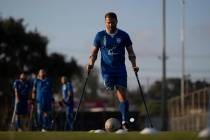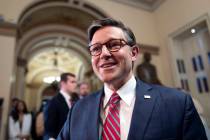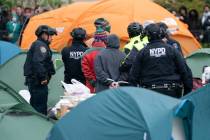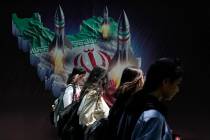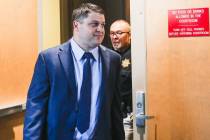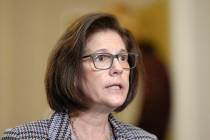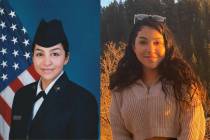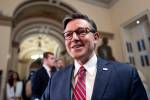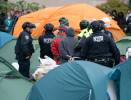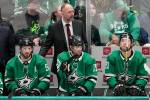Lawmakers told budget cuts would hurt as many as 40,000 poor children
CARSON CITY — As many as 40,000 children from poor families in Nevada might go without health care coverage because the state simply does not have the money to provide it for them, legislators were told today.
Gov. Jim Gibbons wants to cap enrollment in Nevada Check Up — a program to provide health care coverage for poor children — at 25,000 when as many as 40,000 others may meet income eligibility requirements for the program, according to Charles Duarte, administrator of the Division of Health Care Financing and Policy.
Duarte also told legislators that because of the lack of staff, his office has been unable to quickly process the applications of about 5,000 children who want to enroll in the program, which now has about 24,000 enrollees.
"Does the governor understand just what you said?" asked Senate Majority Leader Steven Horsford, D-Las Vegas.
"We have had multiple conversations (with the governor's staff)," Duarte responded. "We have a lot of applications sitting on desks awaiting review."
He said 10 people are reviewing applications, compared with 14 during early in 2007 when the state economy was still strong.
Duarte said the decision to cap Nevada Check Up enrollment and reduce by 5 percent the money the state pays doctors and hospitals who treat patients on Medicaid was based strictly on finances. Medicaid is a health care program for the poor, elderly, blind and disabled.
"It could be a lot worse," Duarte said in opening discussions with the legislative budget subcommittee, which is hearing the governor's budget proposals in preparation for the legislative session, which starts next week.
He said the number of Medicaid receipts is expected to increase by 11.5 percent in the next year and another 5 percent in 2010-11. That would bring the number of recipients to 239,472.
The number of people seeking Medicaid is directly related to the rise in unemployment, he said. Unemployment in the state has hit 9.1 percent, the highest since 1983.
Assembly Speaker Barbara Buckley, D-Las Vegas, expressed concern that physicians might not treat children and other people on Medicaid if the money they receive is dropped by 5 percent, following a 5 percent cut last year.
"You have to do your job," Buckley told Duarte. "Our job is a little different. We have to make decisions on what reductions can be made without harming our system or setting the state back 10 years.
She also noted that hundreds of pregnant women in the next two fiscal might not have health care coverage, and could simply end up going to emergency rooms for birth.
"We don't like to see services eroded, but it is a money issue," Duarte said.
Buckley said it was clear to her that the state cannot place a cap on Nevada Check Up enrollment.
During the hearing, several doctors said they could no longer treat Medicaid patients if the proposed cuts are approved by the Legislature.
"There is nothing we want to do more than treat kids," said pediatric physician Mark Barry. "It is extremely difficult to operate under these conditions."
Contact Capital Bureau Chief Ed Vogel at evogel@reviewjournal.com or 775-687-3901.








